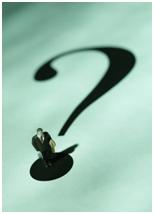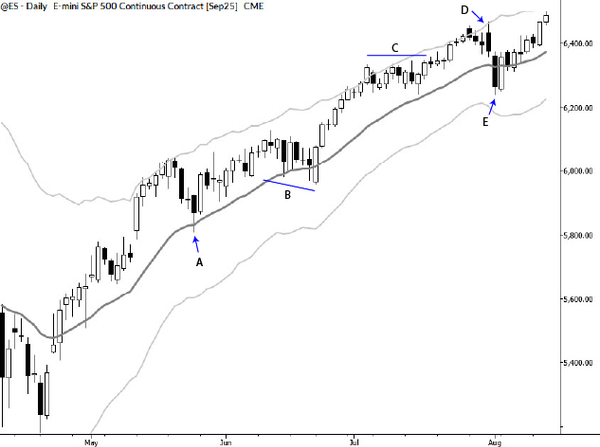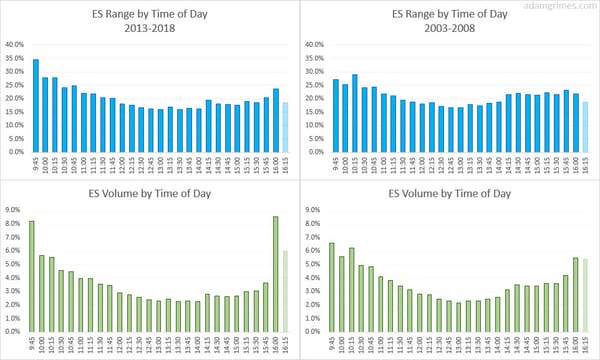The most important question you need to ask
I spent an hour a week ago talking with a very experienced stock trader. This guy has made a lot of money, but he's made it while fighting a strongly bearish bias--he's been almost exactly wrong, for a long time. He's been wrong, and he's stayed wrong. Though he's made money (a testimony to his trading skill), he knows he could have done much better without this bias, but he's been unable to shake it. The more stocks go up, the more certain he is that the day of reckoning is just around the corner, the more support he finds in cycles, numerology, fundamentals, and indicators, and the more bearish he gets. As we were talking, I found myself asking one question over and over, and trying to get him to ask himself the same question: how will you know when you are wrong?

It is human nature to have biases. We naturally form opinions, and traders have to act on those opinions--you have to risk your money (or someone else's) based on your "opinion", so we logically look for supporting factors. This can get a little bit crazy because you can always find justification: there's some Elliot wave count you can coerce, some confluence of Fibonacci ratios, some indicator, some pattern, some cycle, some pattern in numerology, some fundamental justification, some projected political or macro event, some shift in balance of trade--there is always something!
Many people don't realize this, but it is always possible to find justification for being long, short, or flat any market at any time. This is why we have to narrow our scope and define our trading strategies clearly--it's always possible to find justification to do whatever you want. It's impossible to overstate the importance of that point, so please read it a few times! You can always, at any point in time, find justification for executing whatever trade you want.
Karl Popper was one of the greatest thinkers of the 20th century--scientist, philosopher, and philosopher of science. At the risk of oversimplifying, one of his most important ideas provides the foundation for modern scientific thought: ideas can never be proved, only disproved. We need to focus not on finding things that support our ideas, but we should look for pieces of information that contradict. An idea is only meaningful insomuch as it can be disproved.
In other words, if you can't clearly say what could prove you wrong, you don't have a trading idea--you have faith. Faith may very well have its place in human experience, but it has no place in financial markets. We manage risk based on the hard realities of being right and wrong within a vanishingly narrow sliver of a probabilistic edge. We must be brutally honest with ourselves and with our trading ideas, because the market is brutal.
So, every time you put risk on in the market, ask your question this question: how will I know I am wrong? What could happen that will show me my idea was wrong? It's not an exaggeration to say that is the most important question in trading, and it's one that is often overlooked. If you don't have an answer, you don't have any business pulling the trigger on that trade.



